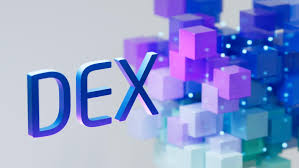ETH plunge triggers MakerDAO's first debt auction, some people successfully complete settlement with 0 DAI
As the epidemic triggered a series of black swan events, the cryptocurrency market collapsed across the board, and Ethereum, the second largest market in the market, also experienced a record plunge. Affected by this, the DeFi leader project MakerDAO will begin the MKR governance token auction in two days This is the first such incident in the history of the agreement.
The MKR auction is also known as the debt auction, which was triggered after the system-wide underdebt debt exceeded $ 4 million. This auction will sell MKR tokens in the form of 50,000 incremental DAI, and use the funds raised to repay outstanding bad debt.
MakerDAO borrowers mint the stable coin DAI, which is a soft peg to the US dollar by using ETH and BAT as collateral. However, earlier today, as the price of ETH plummeted, a large number of MakerDAO loans fell below the mortgage threshold and triggered a liquidation process.

- First Deputy Governor of the Bank of France: What is the financial sovereignty of the digital world?
- Five members of the Libra Association join. Why does this startup compete with Facebook?
- Interview with Babbitt: Asset Management Wallet DeBank goes live, calculates your DeFi mess
(Picture from: tuchong.com)
MakerDAO's clearing activities are conducted in the form of collateral auctions. Users can bid for DAI to obtain ETH collateral, and the winner of the auction can receive a discount of at least 3% on the collateral price. Although the purpose of this auction was to raise DAI to pay off outstanding debt, today, due to a complete lack of competition, some liquidators have won the auction with a bid of 0 DAI.
A member of the MakerDAO community concluded:
"Some vaults were liquidated by the price of 0 DAI, resulting in a net loss in the system. MakerDAO had a surplus of $ 500,000 before the price reduction, and now has $ 4 million of debt to be filled."
As Gauntlet Networks CEO Tarun Chitra explained, the lack of competition is due to the high gas cost of the Ethereum network.
The Ethereum network has encountered severe blockages today due to a surge in transaction volume caused by market fluctuations. Therefore, users are willing to pay more gas fees to complete a transaction. As the market competes, the related fees are also rising.
According to Matteo Leibowitz, a research analyst at The Block, clearing robots do not set the gas price correctly. Therefore, transactions generated by these robot programs cannot be verified in a timely manner and cannot participate in auctions, which enables a single liquidator to win a bid of 0 DAI.
Leibowitz also added:
"Congratulations to the lucky 0 DAI bidders, now that the liquidators are aware of their mistakes, I expect future collateral auctions to remain competitive."
It is reported that MKR holders are still discussing solutions to prevent 0 DAI bidding, including increasing the initial bid and duration of the collateral auction. It's unclear how MakerDAO will go next.
We will continue to update Blocking; if you have any questions or suggestions, please contact us!
Was this article helpful?
93 out of 132 found this helpful
Related articles
- ETH suicide diving panic due to Maker liquidation? This is a misunderstanding
- Xiao Lei: Bitcoin's risk aversion is limited, but humans underestimate the trend it represents
- Crypto market dives collectively, sells out USD 2 billion, bitcoin price has "halved"
- BitMEX CEO: Bitcoin price will not rise in the short term, it will hover between 6000 and 7000 US dollars
- BTC sees historic collapse, contract market smashes $ 2 billion
- Bitcoin plummeted 22% in 15 minutes. Is the mining disaster coming?
- The first Tokyo Blockchain Expo is coming!






